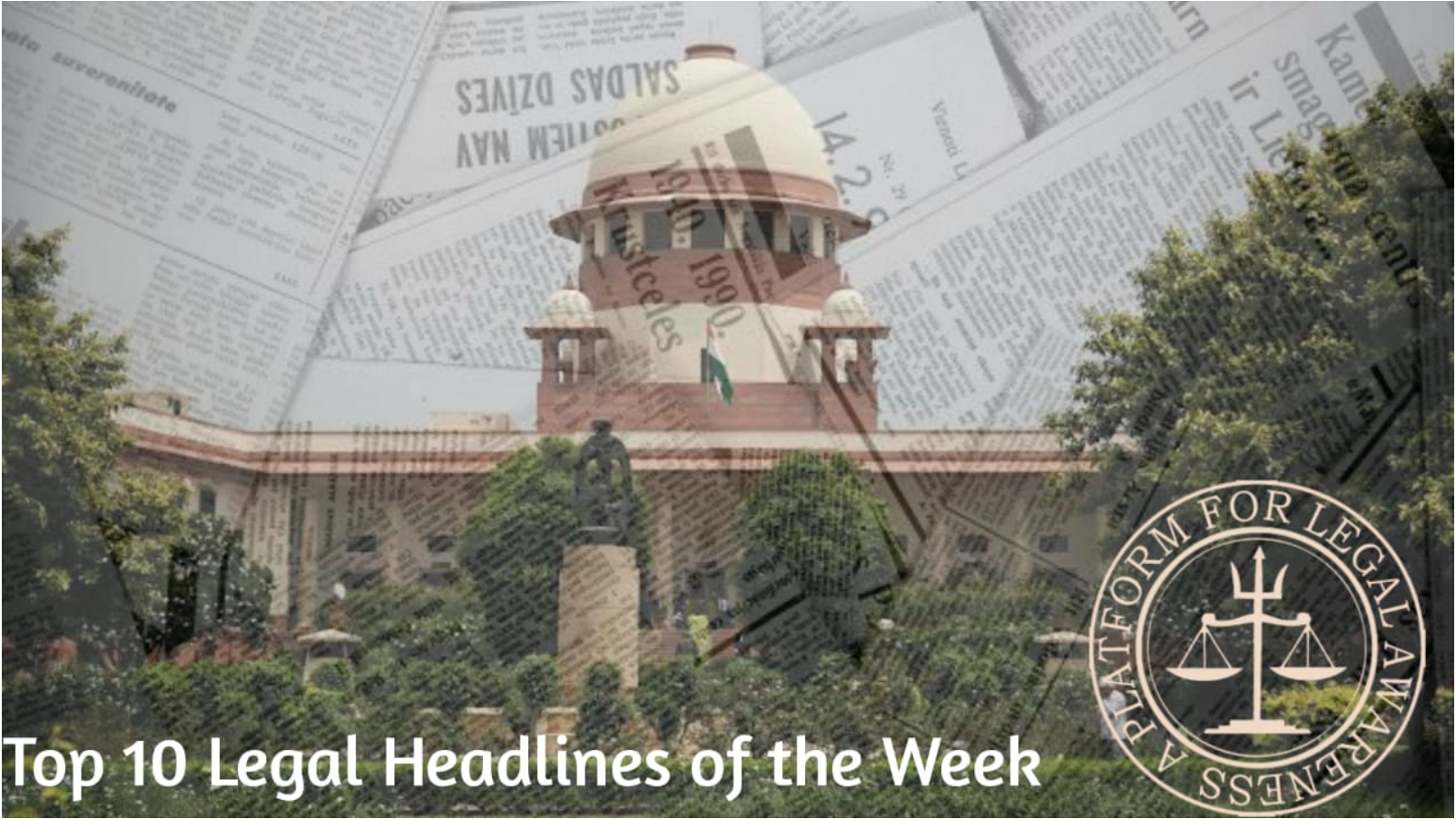1. Supreme Court Rejects Plea Against CLAT PG 2025, Directs Petitioners to Approach High Court
The Supreme Court declined to hear a petition challenging the conduct of the CLAT PG 2025 exam. Petitioners Anam Khan and Ayush Agrawal alleged procedural inconsistencies, errors in the provisional answer key, and exorbitant fees for filing objections. The Court suggested that the petitioners approach the High Court for redressal. The plea had raised concerns about the fairness and transparency of the Common Law Admission Test (CLAT) for postgraduate admissions in law.
2. Supreme Court Advises Petitioner to Approach ECI on PoSH Act for Political Parties
The Supreme Court directed a petitioner seeking the application of the PoSH Act to political parties to first approach the Election Commission of India (ECI). The plea highlighted non-compliance with the Act, particularly regarding the constitution of Internal Complaints Committees (ICCs) within political organisations. The Court emphasised the need to explore administrative remedies before seeking judicial intervention. This move brings attention to the broader accountability of political entities under workplace harassment laws.
3. Supreme Court Issues Guidelines to Address Delays in Death Penalty Cases
The Supreme Court on Monday emphasised that unreasonable delays in executing death sentences violate the convict's fundamental rights under Article 21 of the Constitution. The Court held that such delays, particularly after the rejection of mercy petitions by the President or Governor, could justify commuting the death penalty to life imprisonment. Highlighting the psychological torment faced by death row convicts, the Court directed steps to ensure the timely execution of death warrants while safeguarding constitutional rights.
4. Supreme Court Refers Women's Property Rights Under Hindu Succession Act to Larger Bench
The Supreme Court has referred a significant question regarding Hindu women's property rights under Section 14 of the Hindu Succession Act to a larger Bench. The issue pertains to whether a Hindu woman is entitled to full ownership of property bequeathed to her through a will, even if the will imposes certain restrictions. The two-judge Bench highlighted the need for clarity in interpreting Section 14, which aims to give women absolute ownership rights in certain circumstances.
5. Supreme Court Flags Misuse of Section 498A for Personal Vendetta
The Supreme Court has raised concerns over the growing misuse of Section 498A of the Indian Penal Code, which criminalises cruelty against married women. The Court observed that some women increasingly weaponise the provision to force their husbands into complying with unreasonable demands or settling personal scores. Highlighting the need for balanced application, the Court emphasised that while protecting genuine victims is essential, misuse of the law can unfairly harm husbands and their families.
6. CCI Seeks Supreme Court's Intervention in Amazon, Flipkart Cases
The Competition Commission of India (CCI) has requested the Supreme Court to consolidate 24 writ petitions related to alleged anti-competitive practices by Amazon and Flipkart and transfer them to either the Supreme Court or the Delhi High Court. These petitions are currently spread across multiple High Courts, including those in Delhi, Punjab and Haryana, Karnataka, and Allahabad. The CCI emphasised the need for uniformity and efficiency in handling these cases, which involve critical competition law issues in India's e-commerce sector.
7. Supreme Court: Right to Maintenance Prevails Over Claims Under SARFAESI Act and IBC
The Supreme Court has ruled that the right to maintenance is superior to statutory claims under the SARFAESI Act and the Insolvency and Bankruptcy Code (IBC). The Court emphasised that maintenance is a fundamental right tied to sustenance and human dignity, as guaranteed under Article 21 of the Indian Constitution. This ruling reinforces the primacy of a person’s right to live with dignity, particularly in cases involving financial support after separation or divorce, even over other legal claims.
8. ED Can Only Instruct Public Prosecutor on Facts, Not on Court Arguments: Supreme Court
The Supreme Court clarified that while the Enforcement Directorate (ED) can instruct Public Prosecutors on the facts of a case, it cannot dictate how they should argue in court. The ruling came after a special court directed the ED to instruct prosecutors not to oppose bail if trial delays were due to the ED's conduct. The Court emphasised that prosecutors, as court officers, must act independently and fairly, particularly in cases where trial delays may be attributed to the ED. The case involves an accused in a money-laundering case linked to AAP MLA Amanatullah Khan.
9. Government Sanction Not Required for Prosecution of Cops Filing False Cases: Supreme Court
The Supreme Court held that police officials who file false cases cannot claim immunity from prosecution under Section 197 of the CrPC, which typically protects public servants from prosecution for acts done in official duty. The Court emphasised that lodging a bogus case or fabricating evidence cannot be considered part of an official duty, and thus, no sanction is needed for prosecution. The ruling arose from a case where Madhya Pradesh police were accused of fabricating a case to create an alibi for a murder suspect. The Court directed the trial to proceed without delay.
10. Judges Cannot Seek Public Opinion, Accountability Lies in Training: CJI Sanjiv Khanna
Chief Justice of India (CJI) Sanjiv Khanna stated that unelected judges should not seek public opinion through social media before delivering judgments. He emphasised that judicial accountability is upheld through training, judicial restraint, and transparency in the courtroom, with the bar playing a crucial role. CJI Khanna also lauded India’s legal aid system and Lok Adalats for providing justice at the doorstep of citizens and praised the pro bono efforts of lawyers. He reflected on India’s progressive stance on women's rights and the evolving interpretation of fundamental rights.

